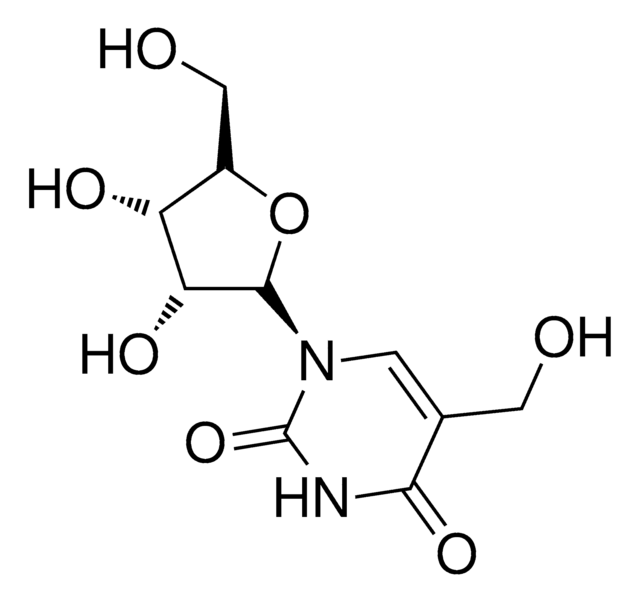SML0404
6,8-Bis(benzylthio)-octanoic acid
≥98% (HPLC)
Synonym(s):
6,8-Bis[(phenylmethyl)thio-octanoic acid, CPI-613
About This Item
Recommended Products
Quality Level
Assay
≥98% (HPLC)
form
powder
color
white to beige
solubility
DMSO: 15 mg/mL (clear solution)
storage temp.
2-8°C
SMILES string
OC(=O)CCCCC(CCSCc1ccccc1)SCc2ccccc2
InChI
1S/C22H28O2S2/c23-22(24)14-8-7-13-21(26-18-20-11-5-2-6-12-20)15-16-25-17-19-9-3-1-4-10-19/h1-6,9-12,21H,7-8,13-18H2,(H,23,24)
InChI key
ZYRLHJIMTROTBO-UHFFFAOYSA-N
Application
- to study its effects on neurite outgrowth in primary mouse dorsal root ganglia cells[1]
- to induce α-smooth muscle actin (αSMA) and pro-collagen I expression and to assess PDH enzyme activity in whole-cell lysates[2]
- to validate basal respiration in tissue respirometry[3]
Biochem/physiol Actions
Signal Word
Warning
Hazard Statements
Precautionary Statements
Hazard Classifications
Aquatic Acute 1 - Aquatic Chronic 1
Storage Class Code
11 - Combustible Solids
WGK
WGK 3
Flash Point(F)
Not applicable
Flash Point(C)
Not applicable
Certificates of Analysis (COA)
Search for Certificates of Analysis (COA) by entering the products Lot/Batch Number. Lot and Batch Numbers can be found on a product’s label following the words ‘Lot’ or ‘Batch’.
Already Own This Product?
Find documentation for the products that you have recently purchased in the Document Library.
Customers Also Viewed
Our team of scientists has experience in all areas of research including Life Science, Material Science, Chemical Synthesis, Chromatography, Analytical and many others.
Contact Technical Service









